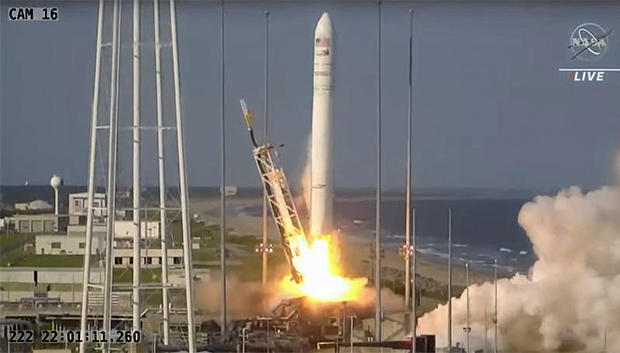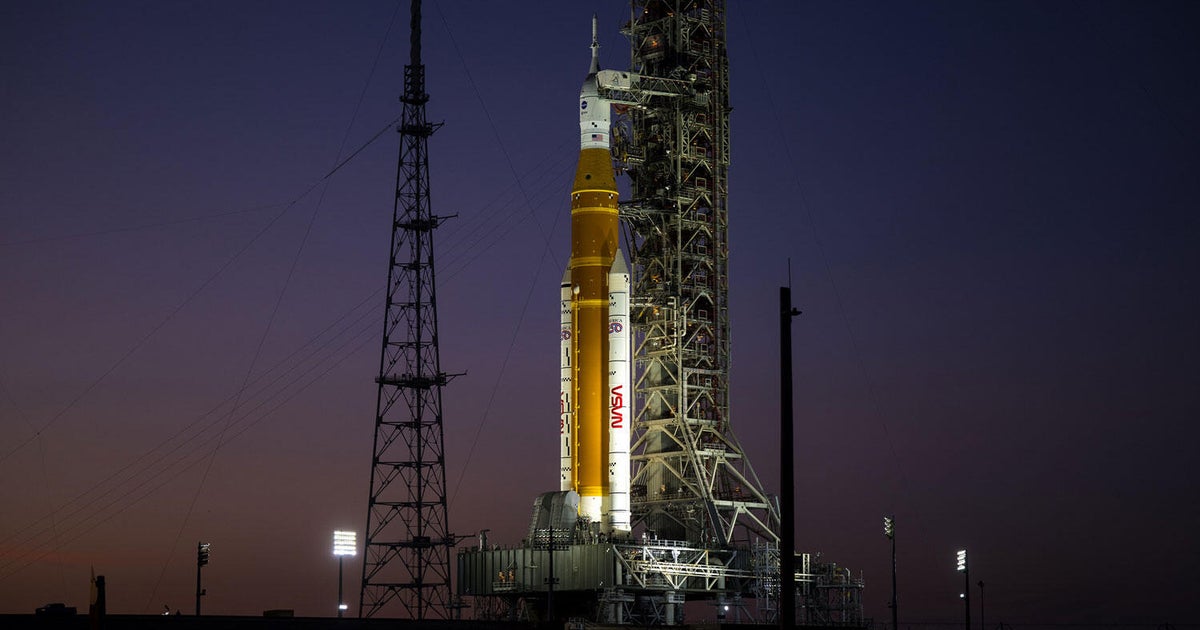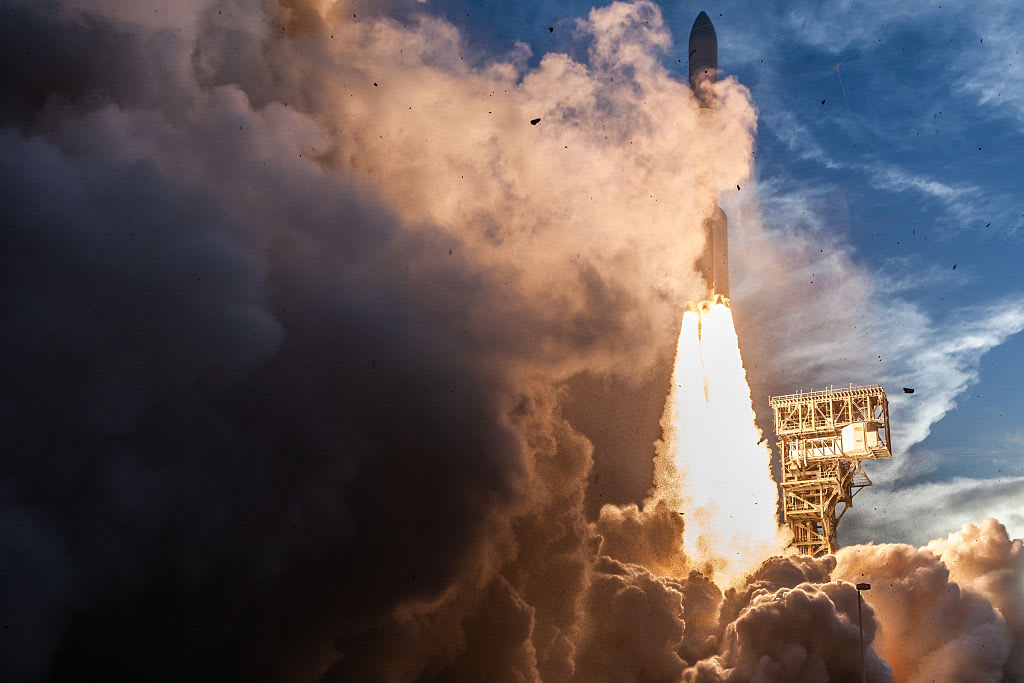Northrop Grumman launches Cygnus cargo ship to space station
A Northrop Grumman Antares rocket blasted off from Virgina's Eastern Shore on Tuesday, climbed away over the Atlantic Ocean and set off after the International Space Station to deliver 4 tons of crew supplies, equipment and research material.
The rocket's two Russian-built RD-181 first stage engines ignited with a rush of flame at 6:01 p.m. EDT, pushing the 139-foot-tall Antares away from pad 0A at the Mid-Atlantic Regional Spaceport — MARS — at NASA's Wallops Island flight test facility.
Climbing directly into the plane of the space station's orbit, the rocket's first stage powered its way through the thick lower atmosphere to an altitude just over 50 miles, before shutting its engines down and falling away.
A solid-propellant upper stage motor then ignited, boosting the spacecraft to an orbital altitude of just over 110 miles.
The Cygnus supply ship, making Northrop Grumman's 16th cargo run to the space station, was released to fly on its own about nine minutes after launch.
If all goes well, the automated spacecraft will execute a series of carefully planned thruster firings to chase down its quarry, pulling up to within about 30 feet of the station around 6:10 a.m. Thursday. The Cygnus then will stand by while the station's robot arm locks on and pulls it in for berthing.
The cargo ship is loaded with 3,078 pounds of crew supplies, 2,286 pounds of space station hardware, 2,346 pounds of research material and about 130 pounds of computer gear and spacewalk equipment.
The station hardware includes mounting brackets for a second set of roll-out solar arrays the astronauts plan to install during a Sept. 24 spacewalk; oxygen generation equipment; experimental carbon dioxide removal gear; emergency breathing gear for visiting commercial astronauts; and spare parts for a next-generation toilet.
The Cygnus also is carrying experiment samples and hardware in wide variety of disciplines, including one that will attempt 3D printing using simulated lunar soil, an experiment to shed light on how muscles age and a student experiment to grow slime mold in weightlessness.
As always, the spacecraft will deliver fresh fruit and menu food items to the space station's crew.
Northrop Grumman and SpaceX both build and launch unpiloted cargo ships to the International Space Station under NASA contracts intended to provide resupply services in the wake of the space shuttle's retirement in 2011.
Northrop Grumman's initial resupply contract, including modifications, totaled about $2.89 billion for 11 cargo delivery missions through April 2019. This week's flight is the fifth of eight additional missions covered under a follow-on contract with a "not to exceed" value of $3.1 billion.




